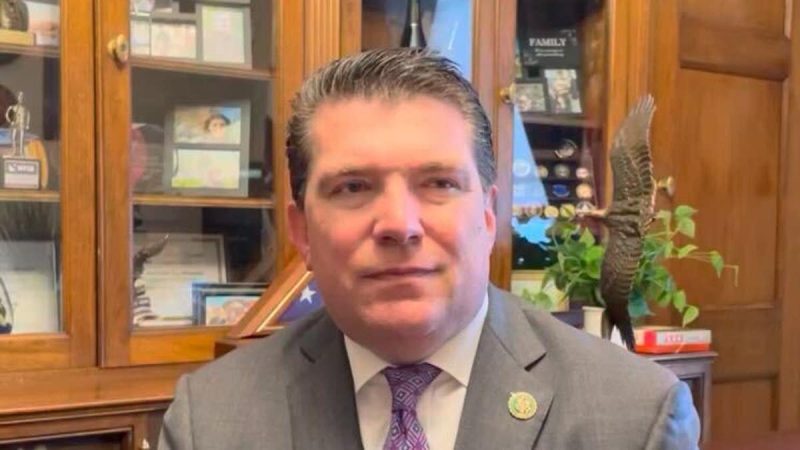Congress might consider new legislation on artificial intelligence and its effect on elections this year, according to the chair of the House of Representatives’ new AI task force.
‘I do hope that we’re going to be able to get started on actually creating and passing some legislation. I think that we’re fortunate that there are some things that are very pressing on AI, but there’s other things that relate to medium-term and long-term threats that don’t need to be acted on immediately,’ Rep. Jay Obernolte, R-Calif., told Fox News Digital in an interview.
‘But those short-term threats, I think we can mitigate those this year and I’m hopeful that the task force – we’ll be able to get that done.’
Asked to elaborate on short-term legislative goals, Obernolte said, ‘We have an election coming up – the use of AI to spread myths and disparate information about candidates, I think, is something we should all be able to agree is not only a bad thing for society, but something that could be a threat to people’s trust in our democracy.’
Bills related to combating AI-generated disinformation have been introduced in this Congress amid a flurry of other legislative proposals, as lawmakers race to get ahead of the rapidly emerging technology. But so far, no measures have garnered significant traction.
Obernolte, who made his career as a video game developer before being elected to Congress, called himself an ‘AI optimist.’
He said it has the power to improve Americans’ everyday lives, like leading to lower grocery and gas prices.
‘Any time that you enhance the productivity of our economy, the natural consequences are that things become less expensive to produce, and that creates a rising wave of prosperity that lifts all the boats. So that’s one of the reasons why AI could be a tremendous force for good,’ Obernolte explained.
The California Republican added that AI development comes with ‘substantial risks,’ including more sophisticated cybercrime efforts, like AI being ‘used by nefarious actors to spread myths and disinformation’ and ‘to pierce through digital data privacy’ to steal people’s information.
‘We say that bad people are going to be bad, and they’re going to be bad more effectively with AI, so AI can be used to enhance the ability of cybercriminals to conduct cyber fraud,’ he said.
The task force came together by way of a bipartisan initiative announced last month by Speaker Mike Johnson, R-La., and House Minority Leader Hakeem Jeffries, D-N.Y. It’s co-chaired by Obernolte’s fellow Californian, Rep. Ted Lieu, a Democrat.
Obernolte said the main focus of his task force would be creating a comprehensive report with recommendations on the next steps in terms of Congress’ role in AI. However, he stressed that legislation should be the end goal to provide long-term stability to the new industry.
‘It does no one any good if we just talk about it, or if we have just have meetings, or if we just create reports. We need to actually pass things, and whatever we pass, I think the number one goal is it has to be durable,’ he said.
‘These companies are making investments of currently hundreds of millions of dollars to train these large language models. And in the future, that price is going to go up exponentially. So, no one is going to make that kind of capital investment if they don’t have some durability, if they don’t have some assurance that the rules aren’t going to change every time the winds of political power shift.’
